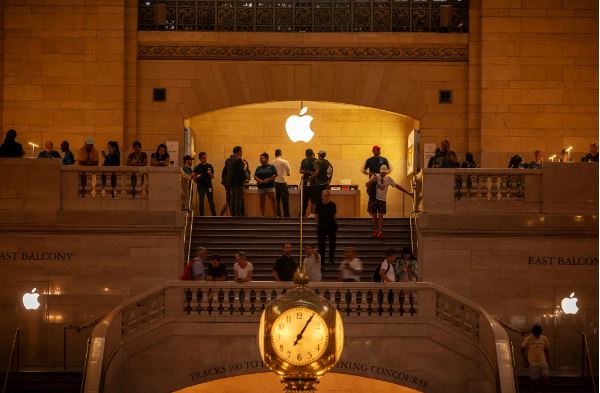In recent weeks, Apple has initiated discussions with major news and publishing organizations, seeking permission to utilize their content in the development of generative artificial intelligence (AI) systems. According to insiders familiar with the matter, Apple is exploring multiyear deals, each valued at a minimum of $50 million, to license news archives. Condé Nast, NBC News, and IAC, the owner of publications like People and The Daily Beast, are among the organizations approached by Apple.
This move signifies one of Apple’s early steps to catch up with competitors in the race to advance generative AI, enabling computers to generate images and engage in human-like conversations. Known as neural networks, this technology leverages vast datasets of images or digital text to recognize patterns. For instance, by analyzing numerous cat photos, a computer can learn to identify a cat.
While companies like Microsoft, OpenAI, Google, and Meta have already introduced chatbots and other products built on this technology, Apple has been notably absent from public discourse on AI. Siri, Apple’s virtual assistant, has shown limited progress in the decade since its inception.
Apple declined to comment on the negotiations. During a recent analysts’ call, Tim Cook, Apple’s CEO, acknowledged ongoing AI-related work at the company but provided no further details.
Despite the potential benefits, some publishers approached by Apple expressed reservations about the proposed collaboration. Publishers, having experienced on-again-off-again dealings with tech giants like Meta, have grown cautious about forming business partnerships with Silicon Valley. Concerns were raised regarding the expansive terms outlined by Apple, covering broad licensing of publishers’ content archives, potentially leaving publishers liable for legal issues arising from Apple’s use of their content.
Additionally, Apple was reportedly unclear about how it intended to apply generative AI to the news industry, posing a competitive risk considering Apple’s significant audience for news on its devices.
Nevertheless, some news executives remained optimistic about the prospect of a meaningful partnership with Apple. Despite concerns, there was a positive outlook on the potential long-term benefits of a deal. Apple’s approach of seeking permission contrasted with other AI-enabled companies accused of securing licensing deals after using content to train generative models without permission.
In recent years, Apple executives debated how to acquire the necessary data for generative AI products. Unlike some rivals accused of taking content from the internet without permission, Apple, committed to privacy, has been reluctant to source information from online platforms. The company’s acquisition of social analytics startup Topsy in 2013 saw Apple instructing Topsy to cease collecting data from Twitter to adhere to its policy against gathering data on Apple customers.
The proliferation of AI has raised concerns among news executives, particularly regarding products like OpenAI’s ChatGPT, which could attract readers away from platforms exclusive to subscribers and advertisers. Print news organizations, having witnessed the transformation of their classifieds business by online competitors, approach AI collaborations cautiously, aiming to safeguard their existing business models.
OpenAI, a major player in the AI landscape, emphasized its commitment to respecting the rights of content creators and owners. The company highlighted recent collaborations with the American Journalism Project and German publisher Axel Springer as examples of mutually beneficial partnerships. OpenAI expressed optimism about continuing to find ways to support a robust news ecosystem through collaboration.
As the discussions progress, the outcome of Apple’s negotiations with news organizations remains uncertain. The evolving landscape of AI in the news industry raises questions about privacy, content ownership, and the dynamics of future collaborations between tech giants and traditional publishers.

